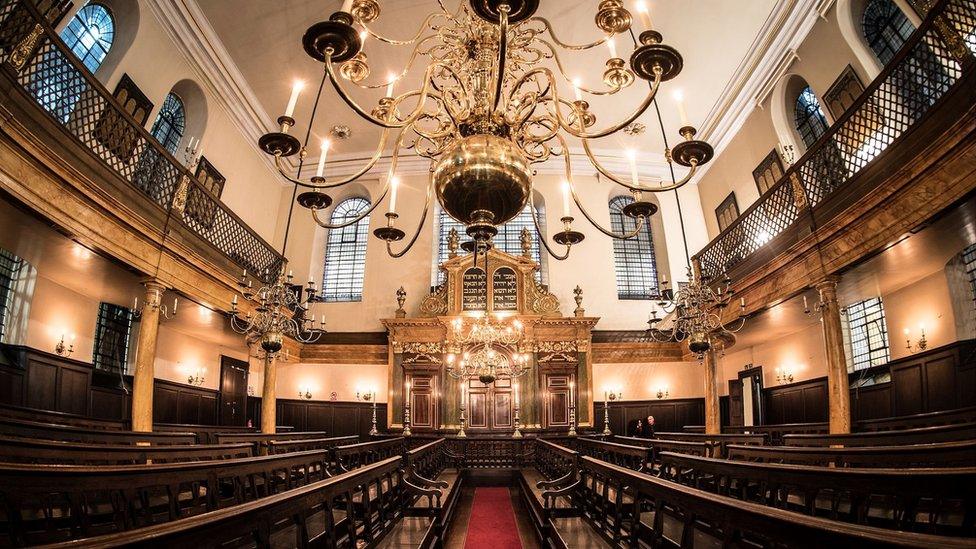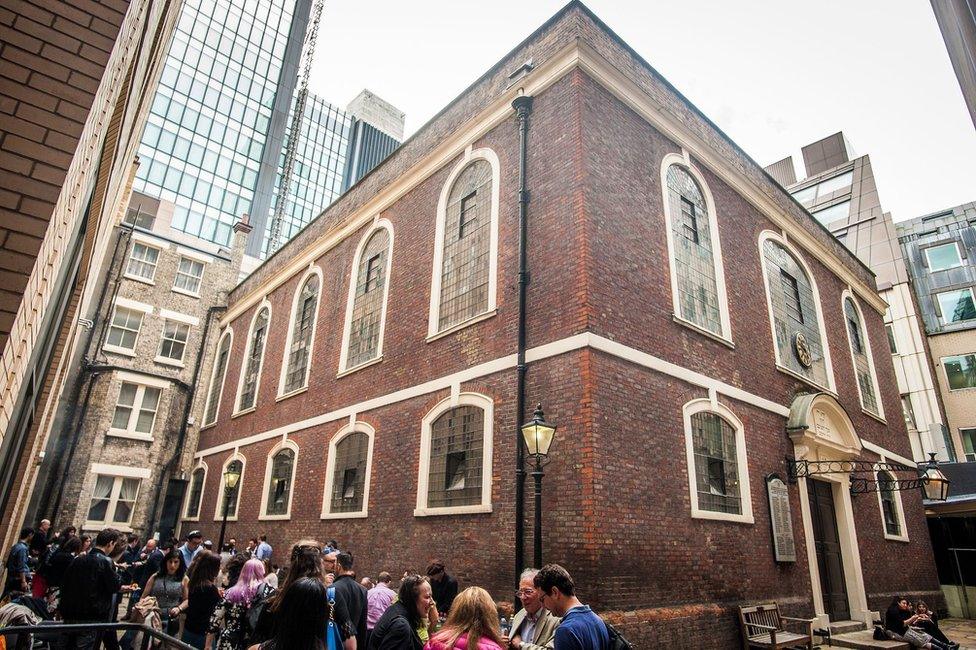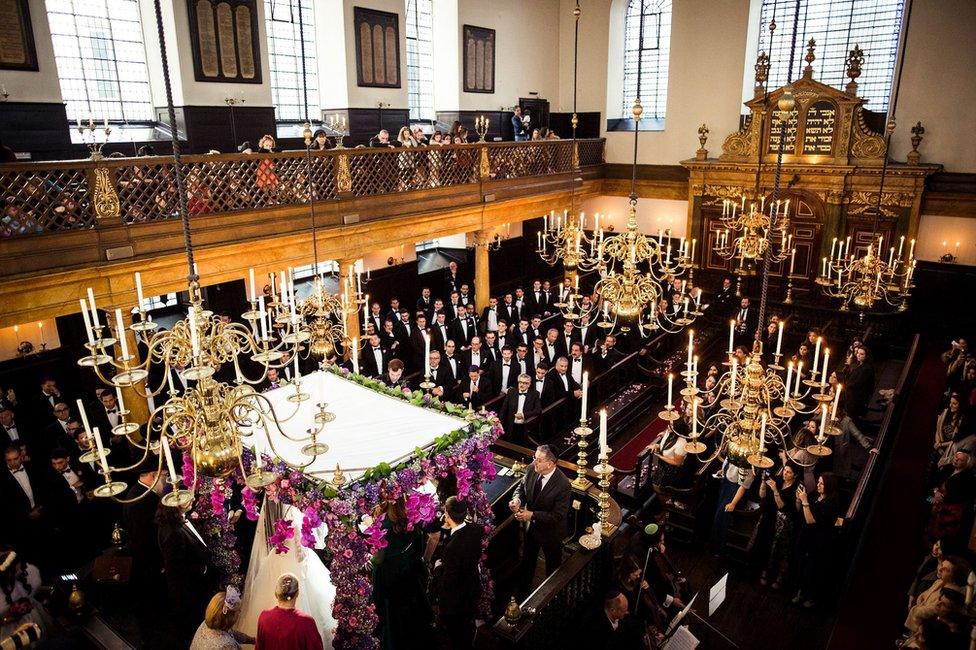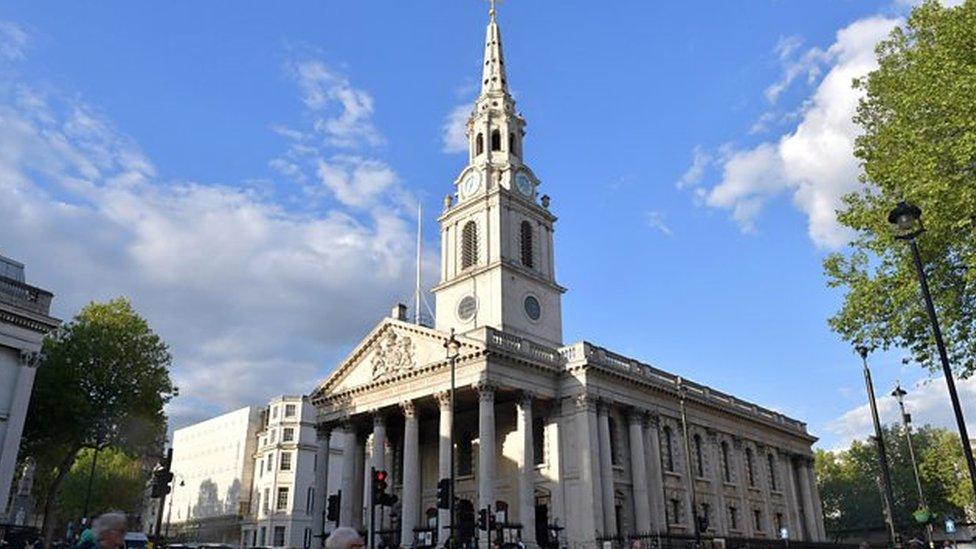Bevis Marks: UK's oldest synagogue faces closure threat over towers plan
- Published

Bevis Marks was built in 1701 and is the only non-Christian house of worship in the City of London
The UK's oldest synagogue could potentially have to shut if plans to build two high-rise towers beside it are approved, its trustees have said.
The developments have been proposed for two streets surrounding Bevis Marks in the City of London.
The synagogue's trustees said if they are constructed, daily services would become "almost impossible" as they would block out nearly all sunlight.
The City of London Corporation said a final decision had not yet been made.
Bevis Marks was built in 1701 and was the first synagogue to be created after Jews were allowed back into England by Oliver Cromwell, following their banishment by Edward I in 1290.
The Grade I listed building is thought to be the oldest synagogue in Europe to have remained in continuous use, with it currently being home to the UK's Spanish and Portuguese Jewish community.

Trustees argue two extra towers beside the synagogue will block out nearly all the sunlight on the building
Developers have proposed to build a 21-storey building on Creechurch Lane and a 48-floor tower in Bury Street which the synagogue trustees argue would block out nearly all sunlight on the building, except for one hour a day.
Such a move would make services "almost impossible" as the synagogue is currently only lit by up to 240 candles and some electric lighting which was installed in 1928. It cannot be added to due to planning restrictions on the building, the trustees claim.
Shalom Morris, rabbi for Bevis Marks, said the proposed towers "would be catastrophic" and the "very survival of our great synagogue as a place of worship is at stake".
"Not only will light be blocked, on which the building depends for ambiance, spirituality, and atmosphere, but the very foundations will be at risk," he said.
The synagogue's chair, Jonathan Solomons, added that the proposed towers were "a step too far" and threatened "not just Jewish but everyone's heritage".

The interior of Bevis Marks is currently lit by candles and a limited electric lighting system
A spokesperson for the City of London Corporation said a final decision "has yet been made" about the proposals.
It said it could not comment on specific applications ahead of a decision but the planning committee "considers all relevant planning matters, including relevant representations both for and against a development, before taking a final decision".
A decision about the plans is expected next month.
Related topics
- Published23 June 2020
